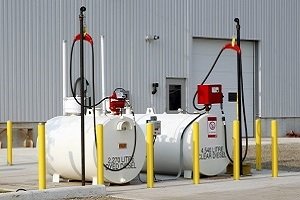
Storage Tank Insurance 101
Coverage for storage tanks is one of the most common risks we address―companies, organizations, facilities, and other properties are home to storage tanks, and should have the right insurance coverage. Clients who have storage tanks can address their needs with Storage Tank Liability or through broader Site Pollution Liability policies. The type of policy that is right for a particular risk often depends on the type of facility requesting coverage, the number of tanks at the facility, and the type of material held by the tanks at the facility. It’s important for insureds to understand their responsibilities in owning a location that has storage tanks. These include proper maintenance and monitoring of the tanks, as well as knowledge and implementation of state and federal guidelines with respect to reporting requirements.
Some important key points to understand about coverage for storage tanks:
- The agent and insured should consider the financial responsibility requirements of the state where the risk is located. There may be requirements for products other than petroleum.
- All tank policies are not the same. Some policies have language requiring a release to be investigated and confirmed through specified means and in accordance with Federal and State regulations before the policy is triggered. Business Interruption may be included in some policies with or without an additional charge. Some policies may include coverage for the loading or unloading of fuel into or from the tanks.
- Most storage tank coverage is written on a claims-made basis, so it’s very important for an insured to maintain continuous coverage and be sure that their retroactive date is maintained on any new policies. In order to be sure that the retro-active date is accurate, it’s essential to provide evidence of the expiring coverage to any new carrier.
- Policies may be written on Excess & Surplus or an admitted basis, depending on the carrier and the state in which coverage is written. State guidelines may dictate the type of coverage or carrier required.
- If an insured is cancelling their storage tank coverage, you should always ask if they need an Extended Reporting Period (ERP) and include this request to the carrier as soon as possible. Some carriers will allow purchasing an extended ERP during the automatic ERP, while others require notification before the cancellation of the policy. The length and cost of the ERP varies by carrier.
Target risks:
- Gas stations & convenience stores
- Auto and boat repair facilities
- Schools
- Golf courses
- Car dealerships
- Airports
- Marinas
- Tank owners and operators needing evidence of financial responsibility.
- Tank owners/operators not satisfied with the protection provided by state funds.
Questions to ask about storage tank coverage:
When seeking coverage for tanks, the most common questions asked by underwriters are: the age of the tank(s); construction materials of the tank(s); and the type(s) of containment and monitoring systems in place. Frequently carriers require tests on both the lines and tanks over a certain age. Many carriers have restrictions on writing coverage for tanks that are out of service, emptied of contents, planned to be removed, or if the property on which the tanks are located is up for sale.
Site Pollution Liability for businesses with storage tanks:
As mentioned above, tank coverage may be addressed on a broader Site Pollution Liability form. This is a good option to consider when there may be other exposures at the insured’s location that can cause a pollution condition that may not be fully addressed on a tank specific policy. For example, risks such as apartment buildings or condos, auto repair facilities, and storage facilities, may find a pollution condition resulting from leaking vehicles, indoor air conditions, and contents of other containers. It may not always be clear if a pollution condition came from a source other than a tank. Coverage disputes can occur if an insured has a policy that is limited to a tank and the source of contamination is found to be something other than the tank.
Gradual pollution considerations:
You should also be sure a policy addresses gradual pollution conditions rather than just sudden and accidental pollution conditions. Pollution conditions are often uncovered while tanks are being removed. The release could have developed over time, but not evident while the tank was below ground.
Although storage tank coverage may seem straightforward, there are considerations that should be addressed when purchasing or replacing this type of insurance. These considerations are particularly important when it comes to the potential damages or defense costs associated with a storage tank claim.
Feel free to contact us for more information or to discuss an account.
Type: Blog
Topic: Storage Tanks